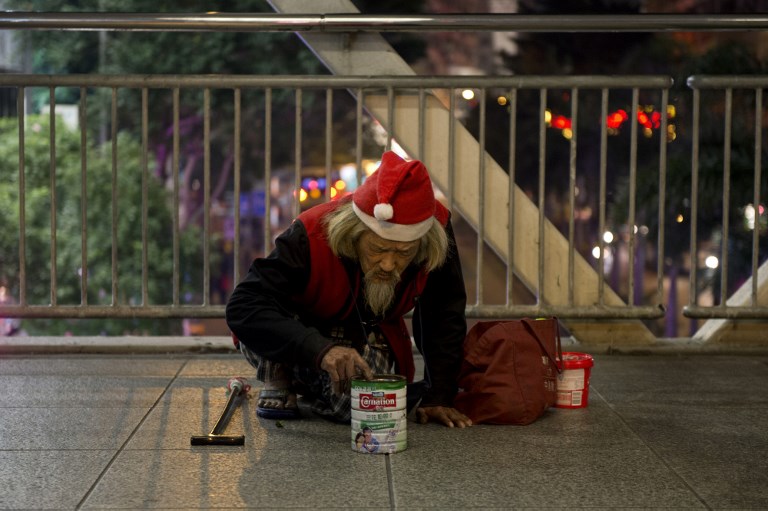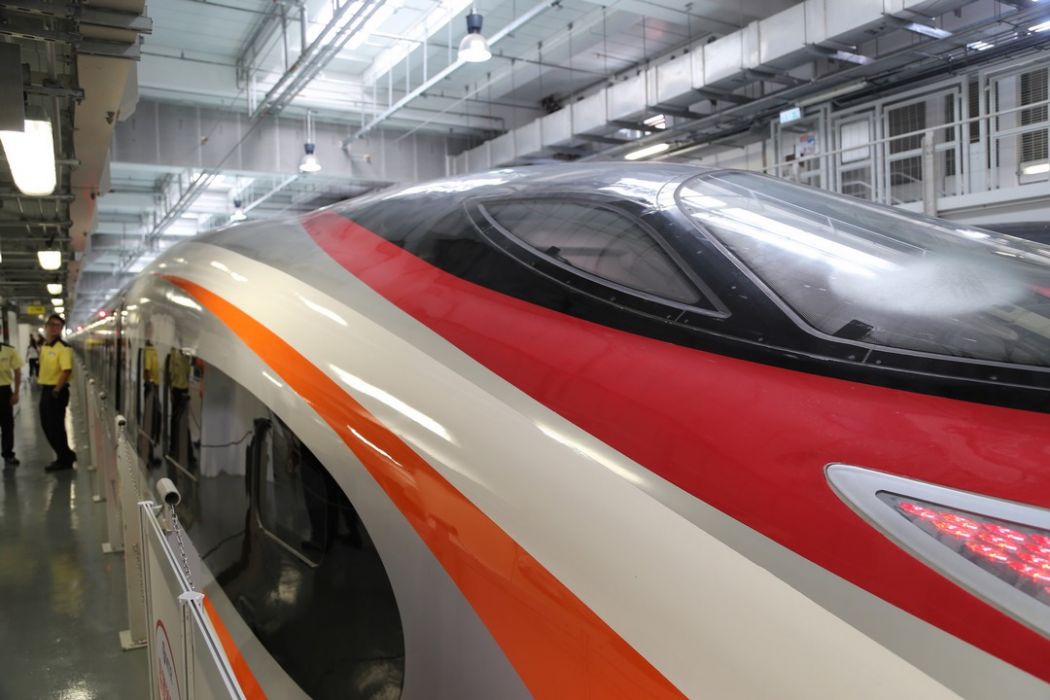Hong Kong stocks are booming. The property bubble refuses to burst. Mainland tourists are once again lining the pockets of the city’s happy retailers. And unemployment is practically nil.
Remember all the naysayers who predicted rough economic sailing for Hong Kong at this time last year? They are now eating their words as the city’s economy rolls along with a growth rate of nearly 4 per cent through the first three quarters of the year. Seemingly, these are good times.
So when a multimillion dollar array of fireworks lights up Victoria Harbour on Sunday night and the party horns blow and the champagne flows, Hongkongers should be feeling a gush of optimism about themselves and the place they call home.

For too many, however, this is simply not the case. Indeed, the pyrotechnic wizardry and gaudy economic figures may well be met with indifference if not downright contempt among those still struggling to make ends meet—namely, the nearly 20 per cent living below the poverty line, not to mention the vast sandwich class that can no longer even dream of owning one of those overpriced, undersized homes.
After all, what is there to celebrate when, as the sun rises on another year, your life appears completely disconnected from a screenplay starring the political and business elite.
Twenty years ago, when the Union Jack was lowered and the Chinese flag raised over this city, Hong Kong was a cheap-labour, low-tax, small-government paradise for the rich.
It remains so today, although we have also witnessed—thanks to that stingy small government—a widening wealth gap over the last two decades that has made being poor in Hong Kong one of the most difficult pecuniary challenges in the developed world.
Add our political woes to the mix and it is no wonder that ringing in the new year is such a bittersweet experience for so many Hongkongers. For ordinary people who don’t own property or count untaxed stock dividends, 2018 promises to look and feel a lot like 2017: the rich will get richer and the poor poorer as the mainlandisation of our politics and culture continues.

The pan-democrats will wail over the city’s loss of autonomy, legal scholars will fret over Beijing-orchestrated assaults on the rule of law and the threat of prison time will hang over the thoughts of anyone planning an anti-government protest.
Yes, so-called “Civic Square”—the eastern forecourt to government headquarters in Admiralty that served as the launching pad for the 2014 pro-democracy Umbrella movement—has finally been “reopened” three years after the last umbrella was folded up and taken home.
But should we offer thanks and gratitude to Chief Executive Carrie Lam Cheng Yuet-ngor for this act of open-minded generosity?
Potential protesters might feel a lot more thankful and appreciative of their leader’s munificent desire to listen to their complaints had she not limited demonstrations in the square to Sundays and public holidays—when she and her ministers most assuredly will not be on site—and made them subject to a government permit.
So thanks but no thanks.
The same goes for the cross-border, high-speed rail colocation agreement that was effectively finalised by the National People’s Congress Standing Committee (NPCSC) on Wednesday, albeit with a meaningless affirmation still to come from our now-neutered Legislative Council.
Supporters of the grossly over-budget HK$84.4 billion Guangzhou-Shenzhen-Hong Kong link—by far the most expensive 26 kilometres of railway in the history of the planet—boast that it will cut current travel times between the three cities by as much as 60 per cent when it opens for business in 2018.

But they doggedly refuse to admit that the damage done to Hong Kong’s autonomy and rule of law by the misbegotten project is an even greater price for the people of Hong Kong to pay.
Of course, the usual mouthpieces for the central government—led by the ubiquitous, fork-tongued chairman of the Basic Law Committee, Li Fei—have found all sorts of ways to twist and distort the words and meaning of Hong Kong’s mini-constitution so as to justify allowing mainland immigration officials and mainland criminal and civil laws to be deployed in a rail terminus operating in the middle of Hong Kong.
The verbal gymnastics performed by Li and other Beijing lackeys aren’t fooling any of Hong Kong’s top legal minds, however.
Eminent human rights lawyer Philip Dykes and Professor Johannes Chan Man-mun, former dean of the University of Hong Kong’s Faculty of Law, are among a group of Bar Association members who have decried the colocation agreement.
They see it as an affront to the Basic Law and chastised the Hong Kong government for having “abrogated its constitutional duties” in consenting to a joint checkpoint in which Hong Kong laws are null and void in a frightening new Beijing-controlled security zone.
But no one in Beijing or in Hong Kong’s obsequious officialdom is listening to them, and so by this time next year we will be toasting an unnecessary, exorbitantly overpriced rail link that has also cost us another big chunk of our autonomy.
